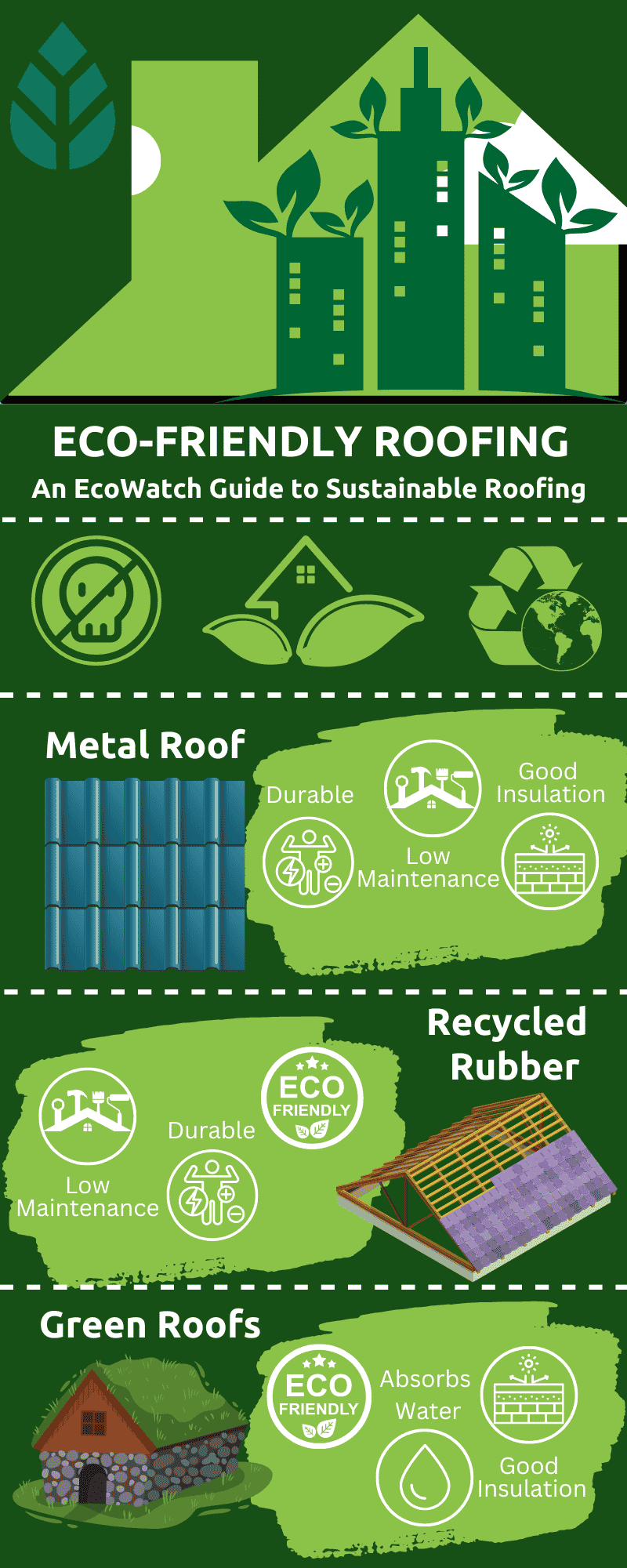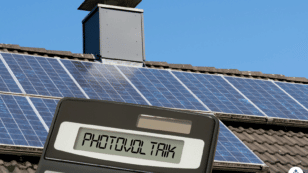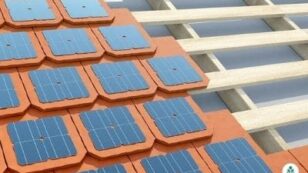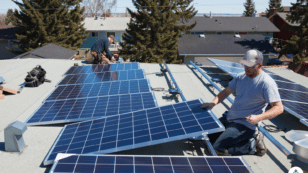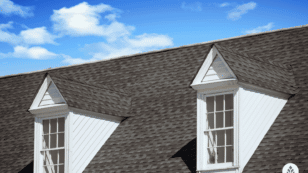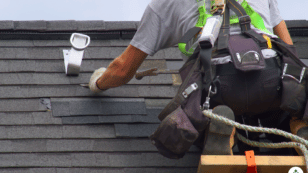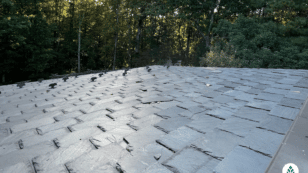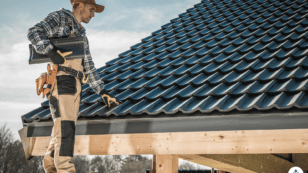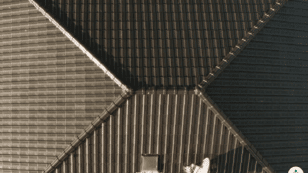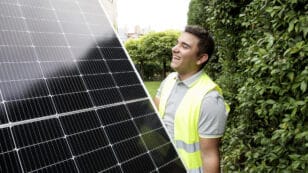

Roof Replacement With Solar Panels: 3 Reasons to Add Solar With Your Roof (2024)
Here’s what we’ll cover in this guide:
- How a roof replacement with solar panels saves you time and money
- What are the benefits of going solar with a new roof?
- What are the best options for solar roofing?
Each product and or company featured here has been independently selected by the writer. You can learn more about our review methodology here. If you make a purchase using the links included, we may earn commission.
With 1 in 4 homeowners planning to install solar in the next five years, there’s no doubt that the demand for solar energy in the U.S. keeps getting stronger. Solar is not only a good way to help reduce the cost of your monthly electricity bills, but it also has profound impact to your independence from the grid in case of freak weather issues and helps make the world slightly more sustainable.
If you’re considering a roof replacement, you may be wondering: Is it a good time to add solar panels, too?
To which the answer is: It’s never a bad time to invest in solar. However, if you already need a new roof, it may be the perfect time to install solar panels on your home, too since your roofs lifespan and solar panel lifespan tends to go hand in hand.
In this article we will discuss the top 3 reasons why we believe going solar while installing a new roof is the ideal solution including:
- Solar Options Help You Save More on Energy
- Greater Overall Savings at Time of Installation
- Lifespans of Both Products Line Up
If you are ready to get started on your roofing project, select one of our top providers below to get a free roof inspection and quote.

Power Home

Average cost
Pros
- Positive industry reputation
- Lifetime or lengthy warranty
- 10+ years of experience
- Positive customer reviews
- Uses eco-friendly materials
- Well-trained, certified installers
- Variety of roofing styles available
Cons
- Limited variety of roofing materials
- Short or nonexistent warranty
- No financing information available
- Expensive
- Little information available on company website

Erie Home
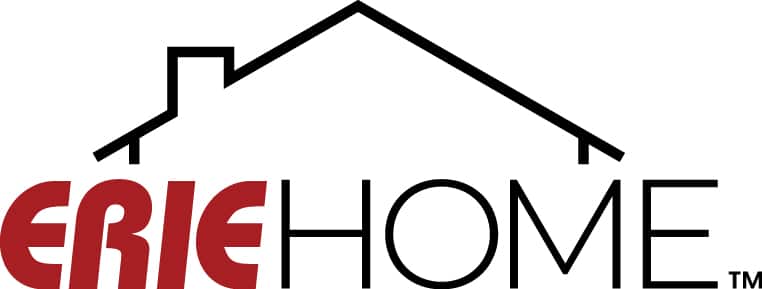
Zero Down - 18 months same as cash with minimum monthly payment
Average cost
Pros
- Lifetime or lengthy warranty
- Widespread availability
- 10+ years of experience
- Positive customer reviews
- Uses eco-friendly materials
- Financing options available
- Well-trained, certified installers
- Uses durable materials meant to last
- Variety of roofing styles available
Cons
- Limited variety of roofing materials
- Expensive

Aspen Contracting

Average cost
Pros
- Positive industry reputation
- Lifetime or lengthy warranty
- Widespread availability
- 10+ years of experience
- Positive customer reviews
- Financing options available
Cons
- Little information available on company website
1. Solar Options Help You Save More on Energy
You probably know that residential solar panels generate clean energy that can drastically reduce or eliminate your monthly electric bills.
But you may not know how closely solar power and roofs are intertwined, functioning together to keep your home running. And if you choose to install solar panels at the same time as a new roof, you’ll likely be saving money on installation.
Roofing industry experts expect to see more homeowners install their roof with solar panels in mind. Todd Miller, President of Isaiah Industries⁶, has gone as far to say:
“More and more we will see the integration of solar and roofing. Eventually we will see roofs where the coatings pre-applied to them are used for solar collection.”
Here’s why combining a roof replacement with a solar installation is a perfect match for conserving energy:
Your roof influences how much energy your home uses. Metal and tile roofs are great options to improve the energy efficiency of your home, decreasing your overall energy costs. Adding solar to your new roof will help you tack on even more energy savings.
If you don’t want to add solar panels on top of your roof shingles, you could replace the roof itself using solar shingles. Solar shingles function as both a roof and a solar panel system. They provide a sleeker appearance than photovoltaic panels while offering the same benefits as traditional solar.
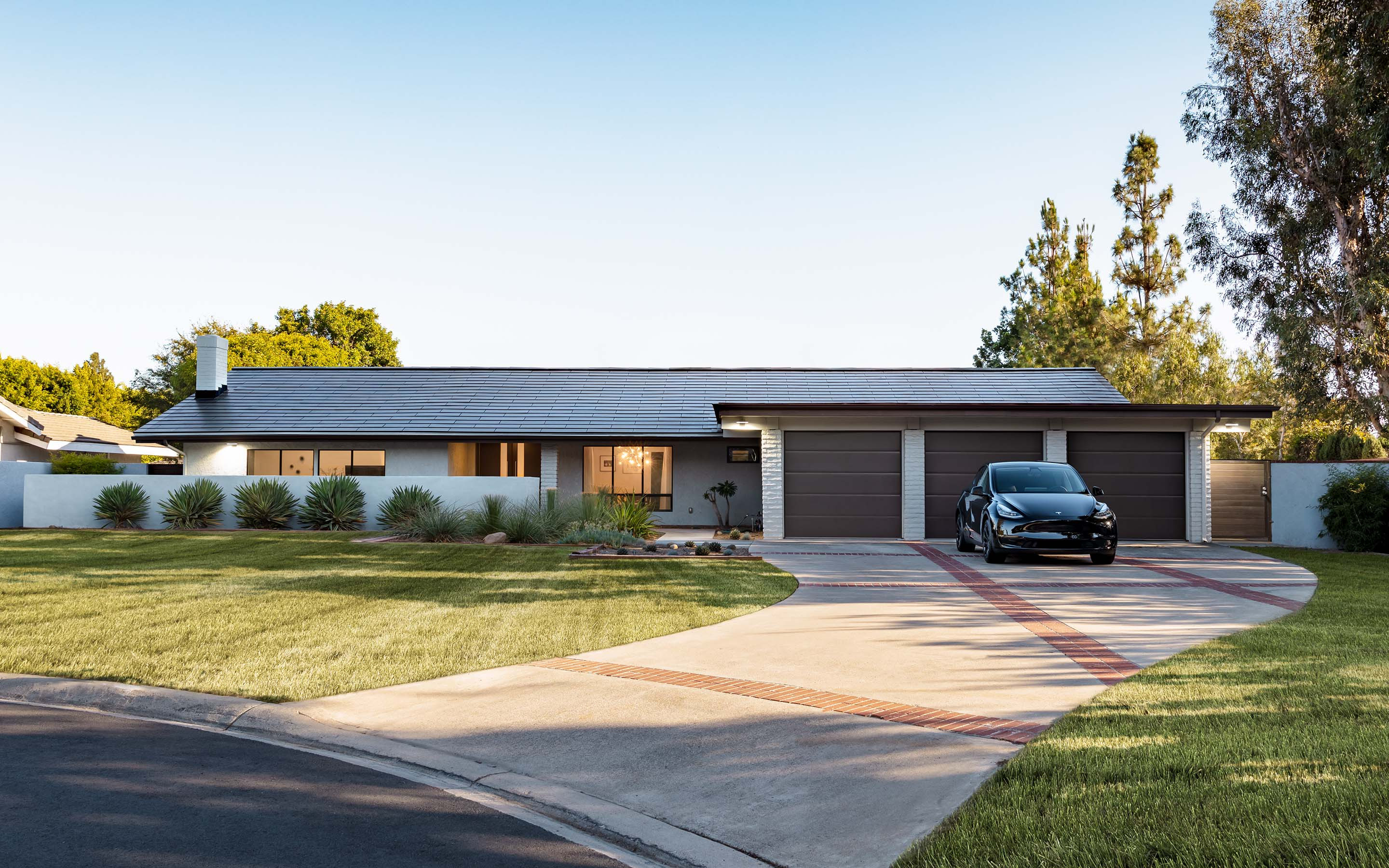
It’s no secret that we’re pro-solar, but we do acknowledge that solar energy isn’t right for everyone. Solar panels have a high initial cost, and your energy savings will depend on your home’s location and your PV system’s energy output.
The best way to know if solar is right for your home is to talk to a local solar installer to get an inspection and quote.
2. Greater Overall Savings at Time of Installation
Preliminary research from the National Renewable Energy Laboratory (NREL) estimates that the average cost of installing a new roof and solar panels at the same time costs $25,000.
In contrast, installing solar panels and a new roof separately will, on average, cost about $5,000 more.1 Let’s take a look at the numbers according to the U.S. Department of Energy:
- Average cost of a new roof: $10,000
- Average cost of new solar panel system: $20,000
- Total of new roof + solar panel system when installed separately: $30,000
Again, that’s an average savings of $5,000 by choosing to install solar while having a new roof put on.
These savings are partly due to partnerships between roofers and solar installers that give discounts to homeowners who replace their roof and install solar panels at once. Additionally, having these services performed together streamlines the installation process, keeping your labor costs down.
Before starting a big home improvement project like a roof replacement or solar panel installation, you’ll want to shop around and explore your options for financing and solar incentives like the federal tax credit.
3. Lifespans of Both Products Line Up
It’s best not to install solar panels on an aging roof. If you wait and end up needing a roof repair or replacement after you install solar, you will have to pay extra to have your panels removed and reinstalled on your new roof.
Solar panel removal and reinstallation costs a few thousand dollars on average.
Solar panels have a typical lifespan of 25 to 30 years, and standard solar warranties last 25 years. In comparison, asphalt shingle roofs last 10 to 35 years and metal roofs last 40 to 75 years. This means that solar panels generally last as long as a traditional asphalt roof, and half as long as a metal roof.
If you align your solar panel and roof installations, you can avoid removing and reinstalling your solar panels during your roof replacement.
Something to consider — if you are replacing your old roof and are interested in installing solar panels, you should know which roofing materials are compatible with a solar system.
Here are the roofing materials that are most suitable for solar panel installations:
- Asphalt
- Metal
- Tile
Wood and slate roofs are less ideal for solar, though it is possible if you hire a roofing contractor with the correct expertise and equipment for the job.
Expert’s Opinion
Janice Vaughan, a solar energy consultant and former roofing sales professional, urges all roofing companies to offer solar. Here’s why:
Considering 7% of all homes across the U.S. are reroofed each year, and solar is more popular than ever before, more and more roofing providers are expanding their roof work services to include solar services.3,4
In her presentations, she argues that roofers have the opportunity to help their customers significantly decrease their utility bills by installing solar panels alongside roofing services.5
Vaughan argues by coupling these installations, customers can see a sharp drop-off in their monthly bills via energy savings, which can then help them pay off the costs incurred by the roof replacement.
Solar is also considered an asset to a home, so roofers help homeowners increase the resale value of their homes when they offer solar installation services.
FAQ: Solar Roof Replacements
Many solar companies partner with roof replacement companies to offer discounts for homeowners looking to install solar while repacing an existing roof. Some solar installation companies will even offer free roof replacements with solar, but this is not the standard.
Solar panels will not ruin your roof if installed properly. To avoid roofing system damage from improperly installed solar panels, make sure that you hire a licensed, reputable solar contractor.
Asphalt, metal and tile roofs are all suitable for solar panels. Slate and wood roofs are not as ideal for solar panel installation because it is more difficult for installers to walk on the roof without breaking these types of roof shingles.

 233k
233k  41k
41k 


